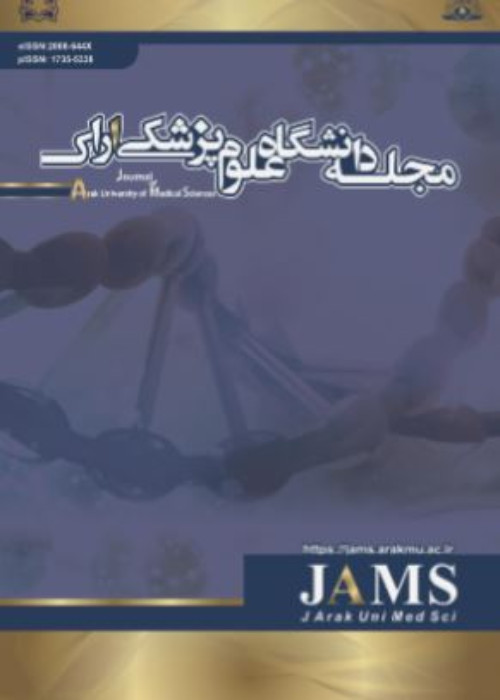Survey of antimutagenic effects of ethanolic extract of propolis by Salmonella typhymurium/microsome
Author(s):
Abstract:
Introduction
In this study, antimutagenesis effect of ethanolic extract of propolis by Ames test against two mutagenic substances named azide sodium and potassium permanganate in the presence and the absence of microsomal homogenate of mouse liver (S9) has been investigated. Materials And Methods
In this experimental study at first, different concentrations of ethanolic extract of propolis (0.1-5%) for determining minimum inhibitory concentration (MIC) against tester strains were used. Then by Ames test, antimutagenesis effect was assessed in nontoxic extent. In this test, various strains of Salmonella typhymurium (TA100 and TA97) that contained selective mutation in their operon histidine, were used. Mutant strains (His-) were grown on culture media containing minimum salt and glucose in the presence of mutagen substances above. So only those bacteria that were reversed by mutation (His+) could grow and form colonies on culture media. If antimutagen (EEP) and mutagen substances were gathered, reversed mutation would be reduced and the rate of mutation inhibition could be calculated by means of formula. The differences between the averages of revertants per plate of the sample in relation to the mutagens were analyzed using SPSS software and one-way ANOVA. Results
The resulted MIC values clearly showed that ethanolic extract of propolis at 5% concentration has antibacterial activity against Salmonella typhymurium, but in 0.1-4% concentrations, such effects were not seen. Findings also showed that propolis in such concentrations could neutralize mutagenic effects of those substances in a dose dependent manner. Conclusion
Finally we found that ethanolic extract of propolis that contains different kinds of major and important substances like flavonoids, has good antimutagenic effects and the best concentration for obtaining such effect is in 4% which also was confirmed with microsomal results. The mechanism of antibacterial effect of propolis is complex and it has no analogy to any classic antibiotics, but it should be emphasized that bacterial cell division is inhibited by propolis. Some researchers also argue that propolis could inhibit DNA-dependent RNA polymerase.Language:
Persian
Published:
Journal of Arak University of Medical Sciences, Volume:11 Issue: 2, 2008
Page:
102
magiran.com/p555012
دانلود و مطالعه متن این مقاله با یکی از روشهای زیر امکان پذیر است:
اشتراک شخصی
با عضویت و پرداخت آنلاین حق اشتراک یکساله به مبلغ 1,390,000ريال میتوانید 70 عنوان مطلب دانلود کنید!
اشتراک سازمانی
به کتابخانه دانشگاه یا محل کار خود پیشنهاد کنید تا اشتراک سازمانی این پایگاه را برای دسترسی نامحدود همه کاربران به متن مطالب تهیه نمایند!
توجه!
- حق عضویت دریافتی صرف حمایت از نشریات عضو و نگهداری، تکمیل و توسعه مگیران میشود.
- پرداخت حق اشتراک و دانلود مقالات اجازه بازنشر آن در سایر رسانههای چاپی و دیجیتال را به کاربر نمیدهد.
دسترسی سراسری کاربران دانشگاه پیام نور!
اعضای هیئت علمی و دانشجویان دانشگاه پیام نور در سراسر کشور، در صورت ثبت نام با ایمیل دانشگاهی، تا پایان فروردین ماه 1403 به مقالات سایت دسترسی خواهند داشت!
In order to view content subscription is required
Personal subscription
Subscribe magiran.com for 70 € euros via PayPal and download 70 articles during a year.
Organization subscription
Please contact us to subscribe your university or library for unlimited access!


